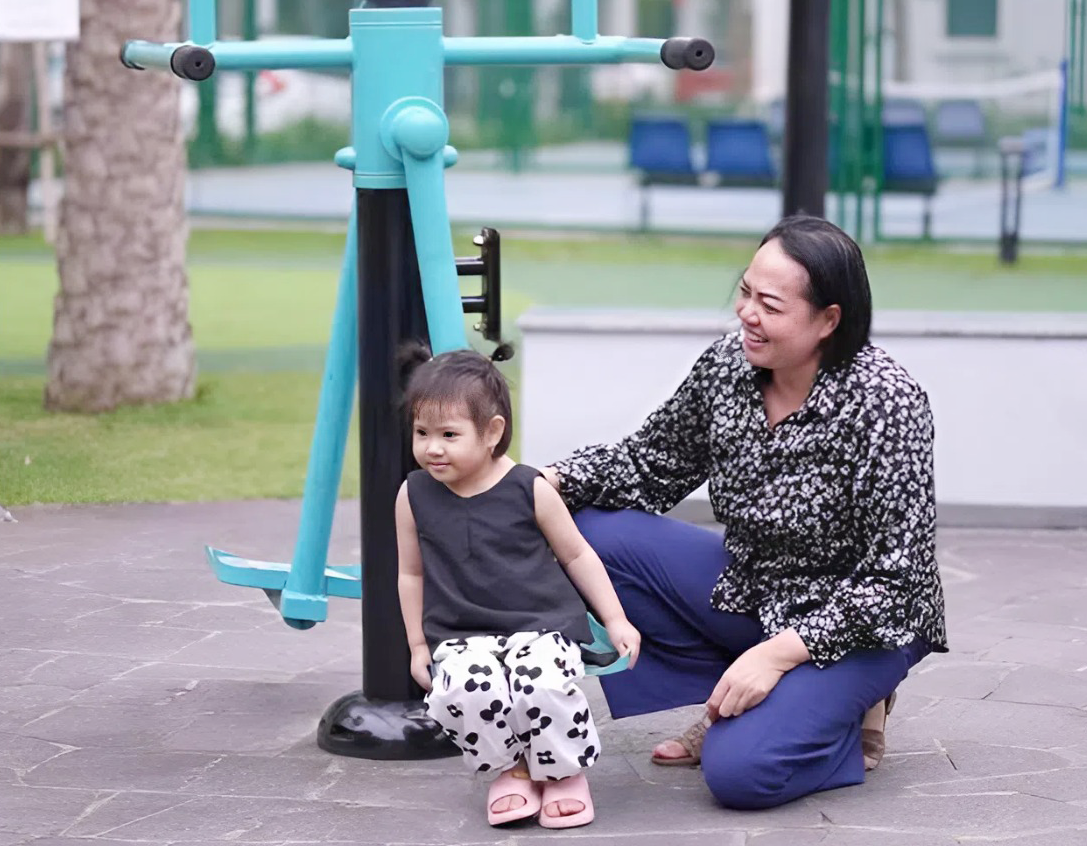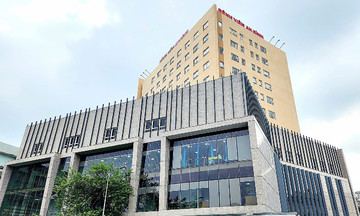"Becoming a mother at almost 50 feels like a miracle," shared Tran Thu Thuy from Hai Phong, while visiting the Center for Reproductive Support at Tam Anh General Hospital in Hanoi earlier this month. Her daughter, Gao, is the "sweet fruit" of the couple's efforts after six years, four egg retrievals, and one failed embryo transfer.
Thuy remarried in 2018, already having a child from a previous relationship. She and her husband tried to conceive naturally for three years without success. Her age, elevated liver enzymes, high blood sugar, and a low ovarian reserve (AMH) of 1.05 ng/m, combined with her husband's poor sperm quality, posed significant challenges. Before starting in-vitro fertilization (IVF), Thuy spent two months managing her underlying health conditions to stabilize her hormone levels and liver function. "I thought IVF would guarantee a child, but the journey wasn't easy, especially at my age," she said.
Over six months, Thuy underwent three egg retrieval cycles. The number of eggs retrieved decreased with each attempt, from 11 to 8, and then to 6. Most of the resulting embryos showed chromosomal abnormalities after genetic screening. One viable embryo was transferred, but the pregnancy wasn't successful. Thuy was advised to consider using donor eggs, but she was determined to have a child genetically related to her.
After three unsuccessful attempts, she took a five-month break to focus on her health and improve egg quality. Thanks to a healthy diet, regular sleep, and adherence to hormone therapy, the 4th egg retrieval was more successful than expected, yielding six eggs and three average-quality embryos.
Doctor Le Hoang, Director of IVF at Tam Anh Hanoi, advised transferring all three embryos instead of further screening. "Transferring day-3 embryos is less effective than day-5 embryos, but with older patients, there might be no viable embryos left after screening," explained Dr. Hoang.
Thuy remained optimistic and continued her normal activities. Two weeks after the embryo transfer, the pregnancy test was positive. At five weeks, she experienced threatened miscarriage, but doctors intervened with medication to save the pregnancy. Gao was born healthy, weighing 3.4 kg, with no genetic abnormalities, and is now over two years old.
 |
Thuy and her daughter. Photo: IVF Tam Anh |
Thuy and her daughter. Photo: IVF Tam Anh
According to Dr. Le Hoang, infertility treatment for older women requires highly personalized protocols and close monitoring of related health conditions. After 40, and especially after 45, a woman's fertility declines significantly due to reduced egg quality and quantity, increasing the risk of chromosomal abnormalities, miscarriage, and pregnancy complications. However, advancements in reproductive medicine, embryo culture, and genetic screening offer older women a chance at motherhood. A positive attitude and a healthy lifestyle also contribute to successful treatment outcomes.
Thuy still has one frozen embryo at IVF Tam Anh and plans to have another child. "As long as I have my health and hope, I still want more children," she said.
Thanh Ba
| Readers can submit questions about infertility here for doctors to answer. |












